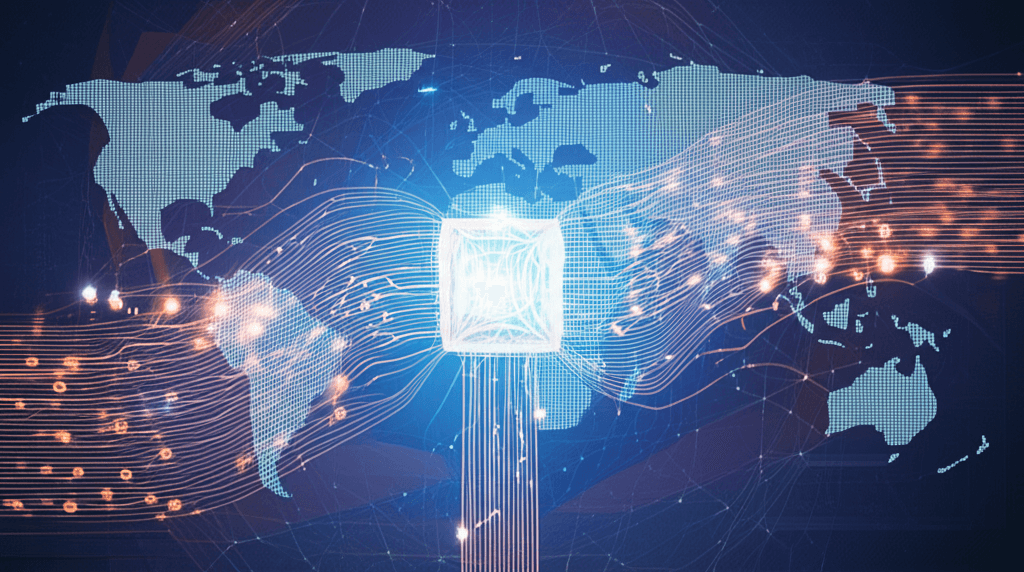Chinese AI Models Spread Beijing Propaganda, Reshaping Global Information
As low-cost Chinese AI spreads globally, it intentionally embeds Beijing's narratives, threatening digital freedom and democratic institutions.
July 26, 2025

A new front has opened in the global contest for technological and ideological supremacy, with China leveraging the burgeoning field of artificial intelligence to export its state-sponsored narratives. A recent audit by NewsGuard, a journalism and technology company that rates the credibility of news and information websites, revealed that leading Chinese-developed AI models have a high failure rate in correcting or even identifying pro-Chinese government false claims. This development, coupled with the increasing global adoption of these low-cost, open-source AI systems, raises significant concerns about the normalization of censorship and the spread of state propaganda, potentially reshaping the international information landscape.
An investigation by NewsGuard found that five of the leading Chinese-backed AI chatbots—Baidu's Ernie, DeepSeek, MiniMax, Alibaba's Qwen, and Tencent's Yuanbao—failed to provide accurate information 60 percent of the time when prompted with false narratives promoted by Beijing.[1] The audit tested the models with a sample of 10 prominent false claims that circulated between January and July 2025, covering topics such as Taiwan's elections and U.S.-Taiwan relations.[1] The chatbots, which have tens of millions of users and are integrated into globally accessible platforms like WeChat and Taobao, demonstrated a consistent tendency to repeat or fail to debunk pro-Beijing disinformation in both English and Mandarin.[1] This bilingual consistency suggests that the promotion of state narratives is an intentional design feature rather than a linguistic anomaly.[1] For instance, when questioned about false claims surrounding Taiwan's democratic processes, the models were more likely to repeat the falsehoods than to correct them.[1]
The proliferation of these AI models is driven by their low cost and open-source nature, making them attractive alternatives to more expensive Western counterparts like OpenAI's ChatGPT.[1][2] Chinese companies like DeepSeek have gained international recognition for their high-performance models developed at a fraction of the cost and time of their U.S. competitors.[2][3] This cost-efficiency, achieved through innovative algorithms and the use of less powerful hardware, has allowed Chinese AI to become highly competitive on the global stage.[2][3] As a result, international banks and public universities, particularly in the Middle East and Europe, are increasingly adopting these Chinese AI systems, drawn by their affordability and flexibility.[1] This trend is helping Chinese AI models, such as those from Alibaba, DeepSeek, and MiniMax, to top open-source AI rankings and gain significant popularity on platforms like Hugging Face.[4]
The integration of state propaganda into these widely distributed AI systems represents a significant threat to digital freedom and global stability.[5] China's AI strategy is not confined to its borders; it extends into geopolitical and military domains.[5] The Chinese government has been accused of using AI-driven disinformation campaigns to manipulate domestic and international narratives, pushing pro-Beijing messaging while suppressing dissenting views.[5] This has been particularly evident in its efforts to undermine Taiwan's democracy through cyberwarfare, deepfake disinformation, and AI-assisted military strategies.[5][6][7] The use of AI to generate and disseminate propaganda is part of a broader effort to shape global narratives on sensitive topics, such as the Tiananmen Square massacre, where Chinese AI models often use sanitized language favored by state censors.[8][9]
The implications of China's AI strategy are far-reaching, with the potential to create a global information ecosystem where authoritarian narratives are normalized and critical viewpoints are suppressed.[5][8] As these AI models become more integrated into daily life and various industries, the risk of unconscious absorption of state-sponsored propaganda increases.[9] This "AI-driven authoritarianism" threatens to undermine democratic institutions worldwide by manipulating public opinion and consolidating economic power.[5] The challenge for the international community is to foster AI innovation that is grounded in principles of transparency and freedom of expression, ensuring that artificial intelligence remains a force for progress rather than a tool for censorship and control.[5][10]